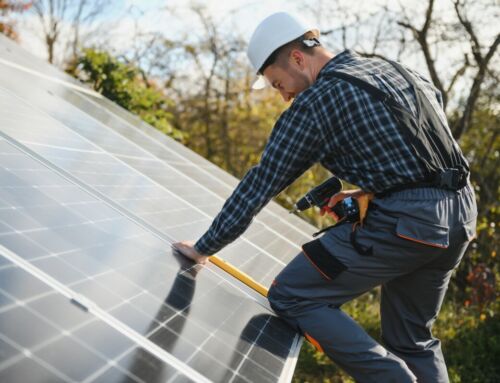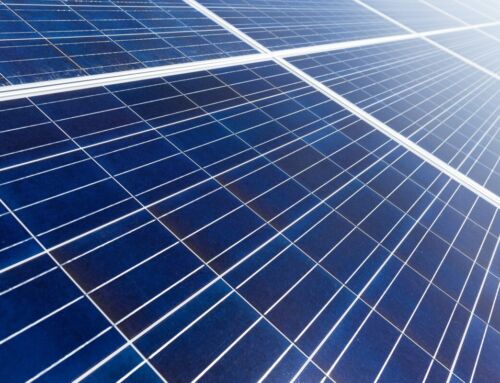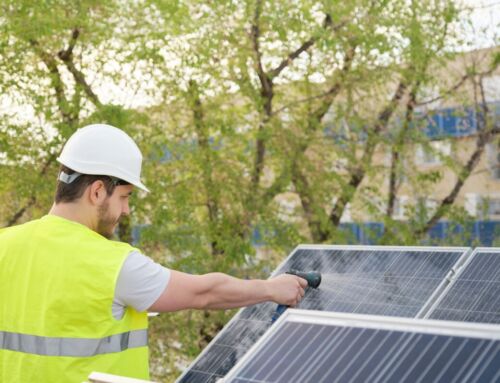As the world shifts attempts to normalize renewable energy sources, solar power has become the leading option worth considering for reducing dependence on fossil fuels and mitigating climate change. One critical component of a solar power system is energy storage, which allows for the capture and use of solar energy even when the sun isn’t shining. However, understanding solar energy storage cost can be complex, as it involves various factors. This article delves into the costs of solar energy storage, the benefits of integrating storage with solar panels, and how to make informed decisions about investing in solar power.
The Importance of Solar Energy Storage
Solar energy storage systems, typically using batteries, are essential for optimizing the use of solar power. They store excess unused energy generated during sunny periods for use when sunlight is scarce, such as on cloudy days or at night, making sure a consistent power supply is maintained. This capability is extremely necessary for maximizing the efficiency and reliability of solar panels and can significantly enhance the overall value of a solar power system.
Factors Influencing Solar Energy Storage Cost
- Battery Type and Capacity: The type and capacity of the battery are primary factors affecting solar energy storage cost. Lithium-ion batteries, the most common type, are more expensive than alternatives like lead-acid batteries but offer longer lifespans and better efficiency. The capacity, measured in kilowatt-hours (kWh), determines how much energy the battery is capable of storing and directly impacts the cost. Larger-capacity batteries are more expensive but can store more energy, providing greater benefits in terms of energy independence and resilience.
- System Size and Configuration: The overall size of the solar power system, including the number of solar panels and the scale of energy storage, influences the cost. Larger systems with more panels and higher storage capacity require more significant investment but yield higher energy production and storage, which can be more cost-effective in the long run.
- Installation and Labor Costs: Installation costs, including labor, vary depending on the complexity of the system and local labor rates. Professional installation ensures the system’s efficiency and safety but adds to the overall expense. It’s essential to consider these costs when budgeting for solar energy storage.
- Incentives and Rebates: Government incentives, tax credits, and rebates can massively reduce the upfront cost of solar energy storage systems. Programs like the Federal Investment Tax Credit in the United States provide substantial savings, making solar power more accessible and affordable.
- Maintenance and Lifespan: The long-term cost of solar energy storage includes maintenance and potential replacement. High-quality batteries have longer lifespans and require less maintenance, which can save money over time. It’s crucial to consider and study these factors when evaluating the total cost of ownership.
Cost Breakdown of Solar Energy Storage
To understand the price structure, let’s break down the typical costs associated with a residential solar energy storage system:
- Battery Cost:
- Lithium-ion batteries: $500 to $1,000 per kWh
- Lead-acid batteries: $100 to $200 per kWh
- Inverter Cost:
- Inverters convert stored energy into usable electricity, which costs between $1,000 and $2,000.
- Installation and Labor:
- Installation can cost from $1,000 to $3,000, depending on the system’s complexity and local labor rates.
- Additional Components:
- Miscellaneous components, such as wiring and mounting hardware, typically add another $500 to $1,000.
- Total System Cost:
- A complete solar energy storage system can range from $10,000 to $30,000.
Benefits of Investing in Solar Energy Storage
Despite the substantial initial investment, solar energy storage offers numerous benefits that can justify the cost:
- Energy Independence: Solar energy storage provides greater energy independence by reducing reliance on the grid. This can be valuable during power outages or in remote areas with unreliable grid access.
- Cost Savings: By storing excess solar power and using it during peak hours, homeowners have the ability to reduce their electricity bills. Many utility companies offer time-of-use rates, where electricity costs more during high-demand periods. Solar energy storage allows homeowners to avoid these higher rates.
- Environmental Impact: Utilizing solar power reduces greenhouse gas emissions and dependence on fossil fuels. Solar energy storage enhances this benefit by ensuring more consistent use of renewable energy.
- Increased Property Value: Homes that are equipped with solar panels and energy storage systems often see an increase in property value. Prospective buyers recognize the long-term cost savings and environmental benefits, making such properties more attractive.
NewSolarQuotes.com: Your Partner in Solar Energy Solutions
At NewSolarQuotes.com, we are dedicated to helping customers make informed decisions about solar energy solutions. We provide comprehensive information on solar panels, energy storage systems, and installation services. Our goal is to make the transition to solar power as seamless and cost-effective as possible.
Our website offers detailed guides on various aspects of solar power, including the latest advancements in solar technology and practical tips for maximizing energy efficiency. We understand that investing in solar energy storage can be a significant decision, and we are here to provide the necessary resources and support.
Whether you are a property owner looking to reduce your electricity bills or a business trying to achieve sustainability goals, NewSolarQuotes.com has the expertise and tools to help you find the best solar solutions. Visit us today to explore how solar energy can boost your energy consumption and contribute to a greener future.
Making the Right Investment
When considering the investment in solar energy storage, it’s essential to weigh solar energy storage cost against the long-term benefits. Here are a few tips to ensure you make a well-informed decision:
- Assess Your Energy Needs: Evaluate your current regular energy consumption and calculate how much solar power you need to generate and store. This will help you choose the right system size and capacity.
- Compare Options: Research different battery types, brands, and system configurations. Compare their costs, efficiencies, and lifespans to find the best fit for your needs and budget.
- Consult Professionals: Seek advice from solar energy experts and get quotes from multiple installers. Professional experts provide guidance that can help you navigate the complexities of solar energy storage and ensure a smooth installation process.
- Consider Future Expansion: Plan for potential future energy needs and consider systems that allow for easy expansion. This flexibility allows you to save money and hassle if you decide to increase your solar power capacity later.
- Monitor Incentives: Stay informed about available incentives, rebates, and tax credits. These programs can help significantly reduce the upfront cost of your solar energy storage system and improve its financial viability.
Conclusion
Solar energy storage is an inseparable component of a modern solar power system, offering numerous benefits like promoting energy independence, solar energy storage cost savings, and environmental sustainability. While the initial investment can be large, the long-term advantages often justify the expense. By understanding the factors influencing solar energy storage costs and making informed decisions, homeowners and businesses can maximize the value of their solar power systems.
At NewSolarQuotes.com, we are committed to helping customers navigate the complexities of solar energy solutions. Visit our website, NewSolarQuotes.Com, to learn more about solar panels, energy storage systems, and how to make the most of your investment in renewable energy.





